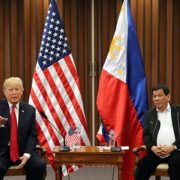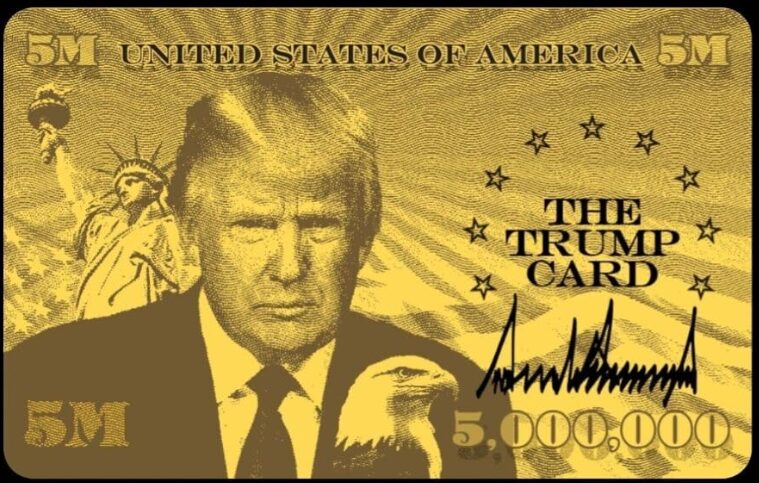President Donald Trump’s first-ever national security strategy presents new opportunities in furthering the alliance between the U.S. and the Philippines, according to a senior researcher at the National Defense College of the Philippines (NDCP).
In line with the Trump administration’s “America first” platform, the new National Security Strategy (NSS) — released last December — encompasses four main principles: protecting the homeland, promoting American prosperity, preserving peace through strength, and advancing American influence.
The plan also zeros in on strategies within the “Indo-Pacific” region, which Christian Vicedo at NDCP said will have a big impact on U.S and Philippines relations.
“The U.S.-Philippines alliance will be significantly influenced by Washington’s security interests and priorities in the Indo-Pacific region,” said Vicedo in his commentary published by the Center for Strategic and International Studies’ (CSIS), a bipartisan and nonprofit policy research organization.
Trump used the Indo-Pacific term during his 2017 Asia tour in reference to countries spanning from China down to Australia, including the Philippines which the NSS called one of the U.S.’ important allies in Southeast Asia, along with Thailand.
Vicedo cited three of the strategy’s regional security issues as having the possibility of developing security engagements between the U.S. and its allies.
The plan asserts that China’s building of artificial islands and military facilities in the South China Sea “endanger the free flow of trade, threaten the sovereignty of other nations, and undermine regional stability.”
China and the Philippines have long argued over the South China Sea. Most recently, Philippine Defense Secretary Delfin Lorenzana said the Philippines intends to hold a diplomatic protest against China for breaking its promise to not militarize artificial islands in the area, as reported by Reuters.
The plan also calls out North Korea’s recent nuclear provocations in saying that Pyongyang is “rapidly accelerating its cyber, nuclear, and ballistic missile programs,” and warns that “jihadist terrorists are likely to return to their home countries” to plan attacks against the U.S. and its allies.
Vicedo pointed to the NSS’ priority political, economic, and military/security actions, which he said “presupposes a U.S. security commitment to allies and partners.”
In detailing efforts within the Indo-Pacific region, the priorities of the NSS include working with allies to achieve denuclearization on the Korean Peninsula, encouraging free and open seaways, strengthening military relations, and addressing growing terrorist threats with Southeast Asian partners through law enforcement, defense, and intelligence cooperation improvements.
“As a result, while Trump’s NSS reiterates transactional principles of economic reciprocity and burden-sharing in confronting common threats, the possibility of a diminishing U.S. security commitment to the Philippines seems unlikely, “ Vicedo reckoned.
The security strategy presents new opportunities to strengthen the U.S. and Philippine alliance, first through its promotion of increased cooperation between the U.S., Japan, Australia, and India — all of which the Philippines has defense and security ties with.
“Indeed, linking U.S. allies and partners may provide a strategic advantage for the U.S.-Philippines alliances in addressing future traditional and nontraditional security concerns such as a more assertive China in the South China Sea or a major terrorist attack similar to the Marawi Siege,” said Vicedo.
This, along with the NSS’ urge for allies to modernize and improve military operations, give a stronger case for alliance opportunities, he added.
Vicedo made reference to the future formation of the Philippine’s Government Arsenal Defense Industry Estate, which will act as an economic zone for local and foreign investors seeking to work with manufacturers in supplying the country’s military needs.
The plan also looks to give companies incentives for investing in developing countries.
With Philippine-U.S. relations dating back to the late 19th century, the leaders of the two countries seemed to hit it off last year despite a number of rocky moments.
Following Duterte and Trump’s first ever bilateral meeting in November 2017 on the sidelines of the 31st Association of Southeast Asian National Summit, Trump said they had a “great relationship” and that he “really enjoyed” being in the Philippines..
The two leaders released a joint statement following the bilateral meeting, as did the U.S. and Philippine Senior Defense and Foreign Affair Officials at the Bilateral Strategic Dialogue 2017.
“The complementarity and opportunities offered by President Trump’s National Security Strategy may re-energize security engagements between the two countries,” Vicedo concluded. (Rae Ann Varona / AJPress)







